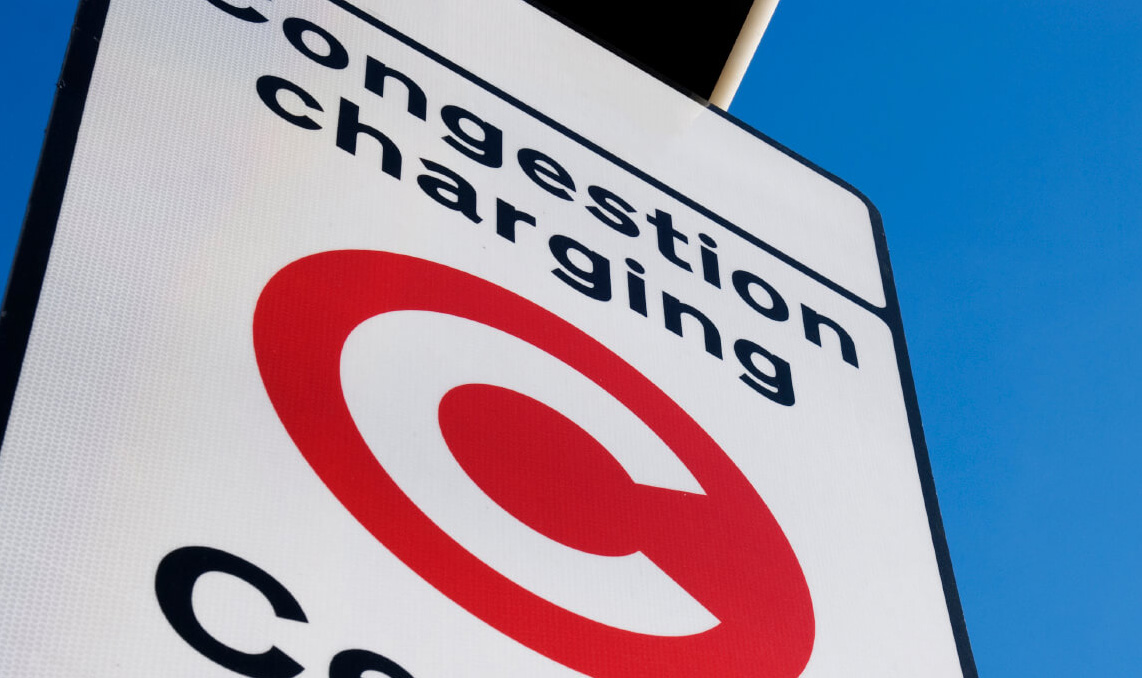-
What We DoFrom fleet management and productivity solutions to upfitting, fabrication, and insurance, Holman has the integrated automotive services expertise to keep your business moving.Overview
-
ResourcesWe have a lot to share. Browse our resources library for current insights, data, strategies, and success stories from our own experts in their respective fields.Overview
-
About UsWhen Holman was founded in 1924, we set something positive in motion. Our consistent focus on people and our commitment to integrity make us who we are today.Overview
 Join Our TeamWe’re not just in the automotive business, we’re in the people business. Join us for the ride.Browse Careers
Join Our TeamWe’re not just in the automotive business, we’re in the people business. Join us for the ride.Browse Careers
What Do Congestion Charges Mean For Your Fleet?
Holman Marketing
April 3rd, 2023

What do congestion charges mean for you?
Whether you call them low-emissions zones, clean air zones, or congestion charges, they all add up to the same thing – increasing costs for entering urban areas which will impact fleet operators up and down the country.
Congestion charges are coming…
Bath, Bristol and Birmingham all have congestion charging zones. London has expanded its ULEZ (ultra-low emissions zones), and Oxford is in the middle of a controversial 15-minute city experiment.
Operators in these cities (or travelling in and out) know the costs of qualifying vehicles. For example, ULEZ alone could cost fleet operators an estimated £54m annually.
While congestion charges are controversial, the evidence suggests they effectively reduce air pollution. In the future, we’re likely to see congestion charging introduced across more cities as air pollution targets become stricter.
The millions of pounds generated in revenue are also a welcome bonus for cash-strapped councils.
Thankfully, congestion charges aren’t introduced overnight, so fleet operators will have time to prepare. They can also benefit from government incentives to transfer fleets to low-emissions alternatives, but these won’t cover the total cost of a new vehicle.
For those operating in congestion zones, the CO2 levels will slowly drop, affecting vehicles that can operate. However, over time, restrictions will become so rigid that only EVs can move freely in the UK’s towns and cities.
This means that planning for how to deal with congestion charging zones should be a priority for every fleet operator.
Fleet Mix Ready Future Flexibility
Fleet operators need the foresight to track trends and assess how congestion charges will impact your business. For those with a national fleet, flexibility is key. It would help if you were on the front foot, ready to deploy low-emission vehicles in areas with congestion charges in place.
At Holman, we work with fleet operators to develop commercial vehicle strategies that give you control of your fleet and confidence in your decisions.
We can already see that commercial vehicles that aren’t compliant command lower prices on the resale market. The challenge is understanding the optimum time to sell your assets and switch to alternatives. Alongside the investment in new vehicles, you’ll need to ensure the infrastructure is in place.
Congestion charging zones are levers to influence change. Do you want to be a follower forced to change or an early adopter who can build a competitive advantage around your new fleet?
We only have some answers, but we know the questions you need to ask. It’s all part of helping you to drive what’s right.
Talk to one of our team today to learn how our fleet management services can help optimise your fleet.
Related Resources
Explore more related industry news, insights, and developments.
It looks like you've navigated to our Holman UK website and are located outside of this region. Would you like to continue or select a different region?
✕






